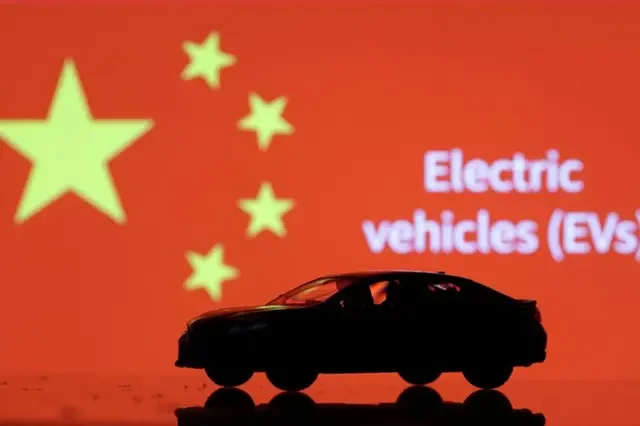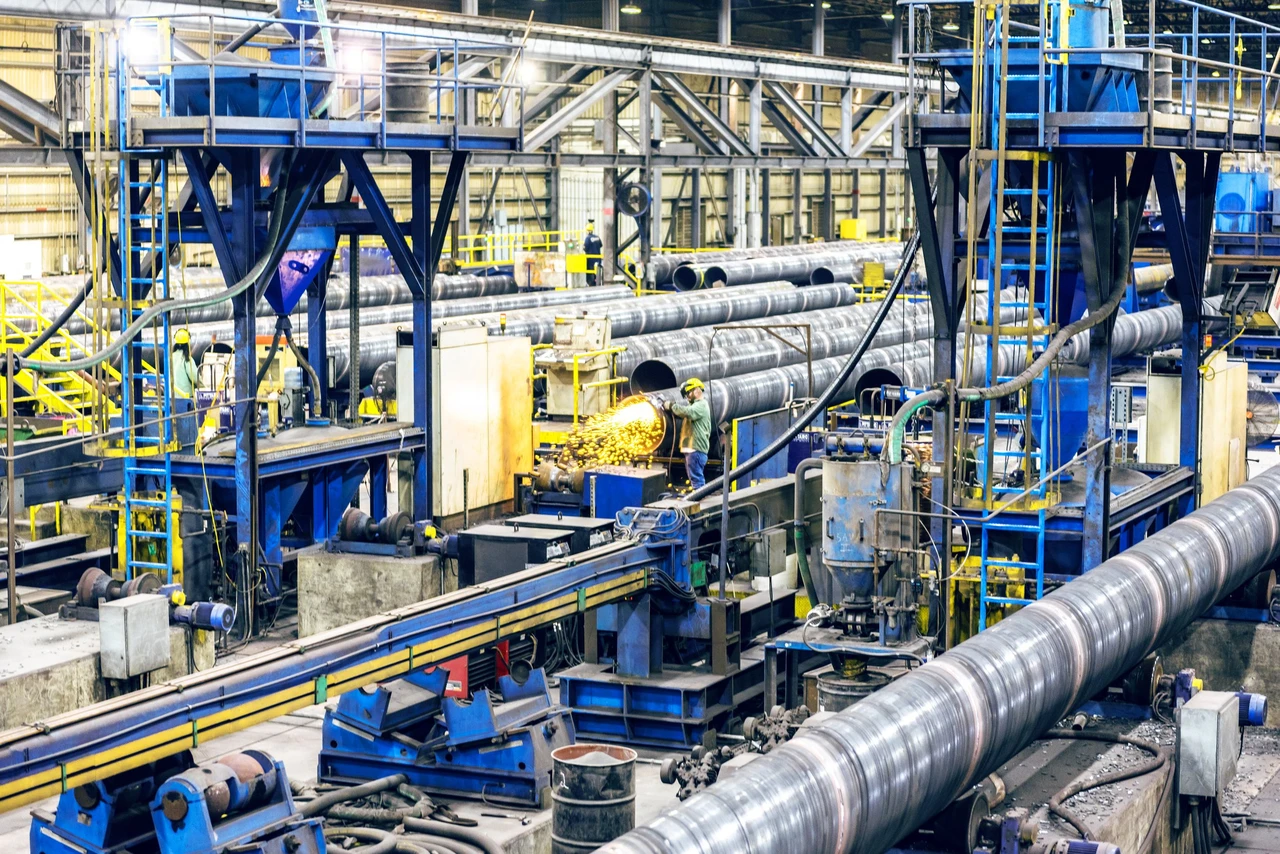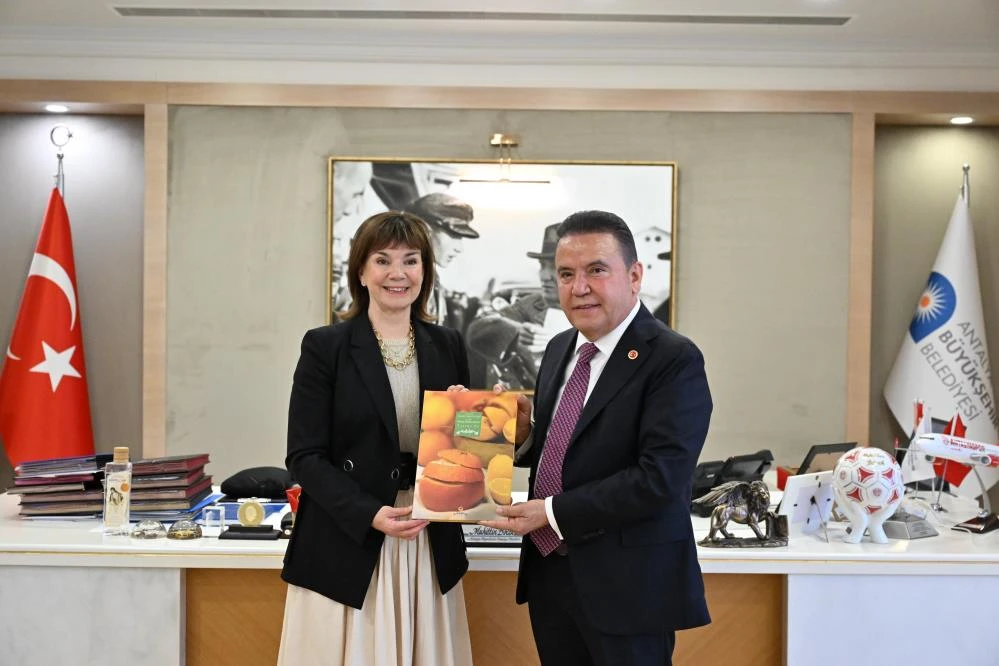Chinese companies hint step back after Türkiye’s 40% tariffs
 Car miniature, "Electric vechicles (EVs)" words and Chinese flag are seen in this illustration taken, September 26, 2023. (Reuters Photo)
Car miniature, "Electric vechicles (EVs)" words and Chinese flag are seen in this illustration taken, September 26, 2023. (Reuters Photo)
Chinese automakers, whose record sales have propelled their market share in Türkiye to 10%, are now facing a significant challenge because of their prioritization of factory investments in European countries.
A decree published in the Official Gazette has imposed a high import tax, previously set at 40%, on electric vehicles of Chinese origin. This tax will now extend to all vehicle types effective July 8.
In response to this decision, Chinese brands are reassessing their supply and pricing strategies, while also expediting their decision-making process regarding production plans in Türkiye.
Why did Türkiye impose a 40% tariff on Chinese vehicles?
Published in the Official Gazette on June 8, the decree expands customs duties to cover all fuel types, with the minimum duty set at $7,000.
The Ministry of Trade has clarified that the objective behind this decision is twofold: to reverse the decline in domestic market share and to encourage investments in manufacturing facilities.
Impact on market dynamics, production plans
Despite the number of Chinese brands in Türkiye surpassing 10, these brands managed to increase their total market share to nearly 10% through approximately 40,000 vehicle sales in the first five months of 2024.
Chery led the sales during this period with 27,000 units sold, surpassing some domestic brands and ranking as the third best-selling brand in May.
The additional 40% customs duty, combined with the existing 10% tax, VAT, and Special Consumption Tax (OTV), is anticipated to result in price increases of over ₺700,000 for Chinese-origin vehicles, depending on the model.
This development has prompted brands to reevaluate their production plans for Türkiye.
Chery commits to Türkiye despite challenges
Chery, having secured the title of the best-selling Chinese brand in Türkiye, initially chose Spain for its first EU-based factory. However, the brand’s global executives have indicated that Türkiye remains under consideration.
Si Fenghuo, President of Chery Türkiye, remarked on the upcoming tax regulation, stating: “We respect the government’s decision on tax regulation. Considering the current circumstances, while adapting to the changes, we are also actively collaborating with relevant ministries to analyze the feasibility of establishing a factory and production in Türkiye.”
We are striving to commence production in Türkiye as soon as possible.
President of Chery Türkiye Si Fenghuo
“Our utmost endeavor is to initiate production in Türkiye at the earliest opportunity. With our authorized dealer network covering Türkiye, we stand alongside our customers, providing sales and service support, and we remain committed to continuing this support,” Fenghuo said.
MG explores investment opportunities
MG is currently at the stage of exchanging letters of intent.
Kagan Dagtekin, CEO of Dogan Trend Otomotiv, and the representative of MG in Türkiye, noted: “MG management had formally announced their intention to establish production facilities in Europe to further their development in the region.”
“As Dogan Trend, we are endeavoring to ensure that Türkiye becomes the location for the first of these planned facilities in Europe. We reached the stage of exchanging letters of intent with MG last week. Our immediate priority is to accelerate production efforts,” Dagtekin added.
Industry players evaluate situation
We have reviewed the relevant news with the Skyworth Group and continue our negotiations at the ministry level, considering both the tax policy in Türkiye and potential changes in customs duties in Europe.
Mahmut Ulubas, CEO of Skywell Türkiye
Anticipated surge in sales before tax regulation
Chinese vehicle sales are expected to accelerate this month as the new tax regulation takes effect on July 8. Husamettin Yalcin, CEO of the automotive data and analysis company Cardata, anticipates a significant increase in the prices of Chinese brands.
“Stock vehicles are expected to be sold rapidly before this date. Extensive campaigns may be organized to clear stocks, leading to record sales. However, a notable decline in sales is also possible after July 8,” Yalcin said.
Yalcin also highlighted that the additional tax could lead to a 10-15% increase in prices of second-hand Chinese-origin vehicles, potentially encouraging consumers to explore the second-hand vehicle market.



